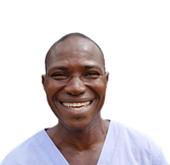Your progress
0%

Evidence shows that people with disabilities often experience poorer levels of health than the general population. They also face a number of different challenges to the enjoyment of their right to health.
The right to health is not only about access to health services; it is also about access to the underlying determinants of health, such as safe drinking water, adequate sanitation and housing.
The right to health also brings freedoms and entitlements.
Freedoms include the rights to be free from:
Entitlements include the rights to: